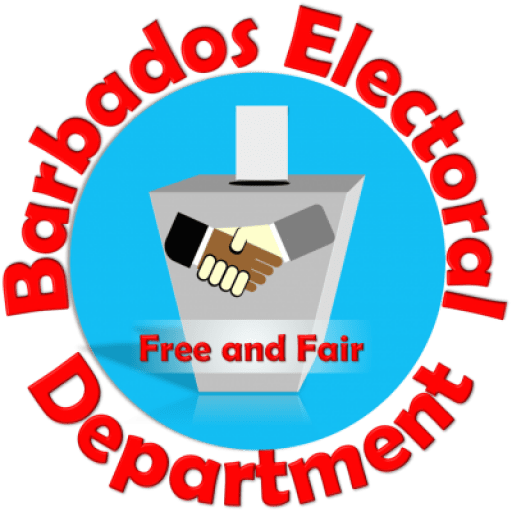Frequently Asked Questions (FAQ’s) about Voting
Voting Information
-
The Vote is Universal – All who meet the qualifications have the right to vote.
-
The Vote is Free – The Elector is entitled to vote freely.
-
The Vote is Secret – The process guarantees the secrecy of the preference and will of the elector.
-
The Vote is Direct – The voter elects the representative of his choice.
-
The Vote is Personal – The Elector shall present him/herself at the designated polling station.
-
The Vote is Non-Transferrable – An elector cannot transfer his rights to vote to another.
Do I have to vote?
-
Voting is not compulsory.
Am I qualified to vote?
-
Under Section 7 of the Representation of the People Act, a person is qualified to be registered as an elector for a constituency if, on the qualifying date, he/she:
a) is a citizen of Barbados; or
b) is a Commonwealth citizen (other than a citizen of Barbados) who has resided in Barbados for a period of at least three (3) years immediately before the qualifying date and
c) is eighteen (18) years of age or over; and
d) has resided in that constituency for a period of at least three (3) months before the qualifying date, or, but for the circumstances entitling him to vote at a Mission, would have been resident at the address at which he was ordinarily resident in that constituency immediately before leaving Barbados.
Am I entitled to vote?
-
A person is entitled to vote as an elector at an election in a constituency if on a polling day he is qualified to be an elector that constituency and is on that day registered in the register of electors to be used at the election in that constituency (Representation of the People Act Cap 12, Sec6(1)).
What if I am not registered in the constituency in which I reside?
-
Under the Representation of the People (Registration of Electors) Regulations, 1990 Regulations 38(1), a person whose name appears in any register for a constituency who has changed his address to an address in another constituency shall notify the Chief Registering Officer of such a change on the Form 10 set out in the Shedule, and if the Chief Registering Officer is satisfied that ther person is ordinarily resident in that other constituency he shall, as soon as the person has completed three (3) months ordinary residency in such other constituency, cause the person’s name to appear in the appropriate register for that other constituency.
What if I have changed address within the same constituency in which I reside?
-
Under the Representation of the People (Registration of Electors) Regulations, 1990 Regulations 39(1), a person whose name appears in any register who has changed his address within a constituency or who has changed his name may notify the Chief Registering Officer on the Form 10 or Form 11, as the case may be, set out in the Schedule, and if the Chief Registering Officer is satisfied as to the identity of the applicant and as to the correctness of the particulars contained in his Form, he shall cause the applicant’s name and his new address, or, as the case may be, new name and address to appear in the register for that constituency.
Where do I vote?
-
In accordance with the Representation of the People Act Cap. 12, Rule 17 Sec.(1), the Returning Oficer places a notice of the poll on each polling station stating the day on which and hours during which the poll will be taken. Additionally, a circular from the Supervisor of Elections, is sent to each elector informing of the polling station at which the elector is registered to vote.
How do I vote?
-
The vote at the poll is given by ballot. The Presiding Officer gives the voter a ballot paper and the voter on receiving the ballot paper, shall forthwith proceed into one of the compartments in the polling station and there secretly mark his paper and fold it so as to conceal his vote, and shall then show to the Presiding Officer the back of the paper so as to disclose the official mark, and put the ballot paper so folded into the ballot box in the presence of the Presiding Officer (Representation of the People Act Cap 12, Rule 29(2)).
What happens if I realize that I spoilt my ballot?
-
If you spoil the ballot, you should notify the Presiding Officer who will issue you with another ballot paper (Representation of the People Act Cap 12, Rule 33).
What time do I vote?
-
The poll is opened from 6:00 a.m. to 6:00 p.m. and no longer; however all persons in line at the polling station at 6:00 p.m. are allowed to cast their votes (Representation of the People Act Cap 12, Rule 12(2)).
What if I am blind and/or otherwise incapacitated?
-
Blind and incapacitated persons are allowed to vote, if necessary, with the assistance of an accompanying person. The voter makes an application to the Presiding Officer to be allowed on the grounds of blindness or other physical cause to vote with the assistance of a companion. The Presiding Officer requires the voter to declare orally that he/she is so incapacitated that he/she is unable to vote without assistance. Once the Presiding Officer is satified, the companion make a written declaration that he is a person qualified to provide assistance and has not previously assisted more than one blind or incapaciatated person to vote. The voter is given the ballot paper and proceeds to vote (Representation of the People Act Cap 12, Rule 31 (1)).
Are there any qualifications for the companion of a blind or incapacitated voter?
-
The companion of a blind or incapacitated person must be eighteen (18) years or over (Representation of the People Act Cap 12, Rule 33(3)).
